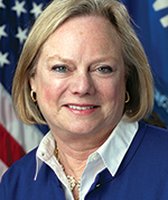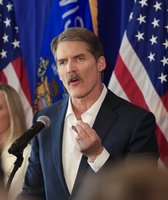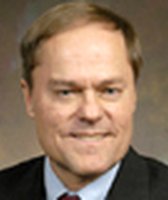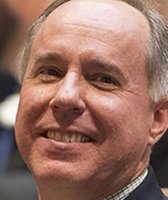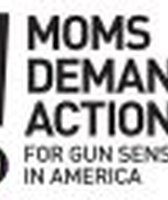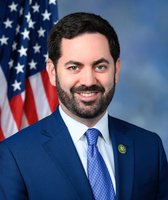Stand up for the facts!
Our only agenda is to publish the truth so you can be an informed participant in democracy.
We need your help.
I would like to contribute
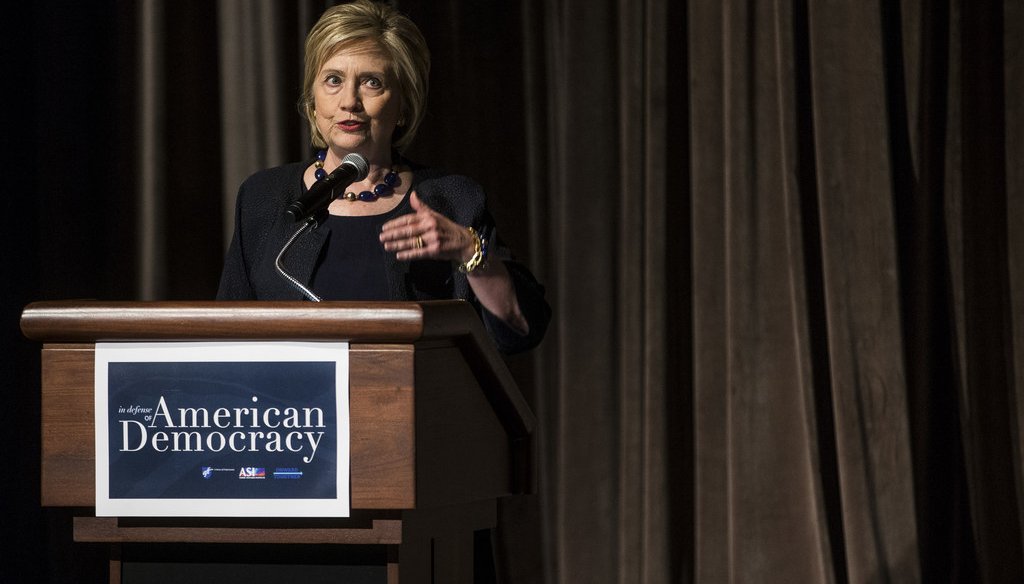
Former Secretary of State Hillary Clinton delivers a keynote speech during the American Federation of Teachers Shanker Institute Defense of Democracy Forum at George Washington University on September 17, 2019 in Washington, DC. (Getty Images)
The impeachment of President Donald Trump by the U.S. House, and its potential impact on the 2020 election has been the biggest political story of 2019.
But it did not crack our annual "High Five" list.
Instead, the most-clicked items from the past year touched on mass shootings, the trade war and its impact on farmers, the great lakes debate between Wisconsin and Minnesota and two claims related to the last presidential election -- both from Hillary Clinton (and both with Pants on Fire ratings).
Here are PolitiFact Wisconsin’s five most-clicked fact checks of 2019:
Sign up for PolitiFact texts
1. State Rep. Ron Tusler: "Less mass shootings under Trump!"
In the wake of two mass shootings in August 2019 -- one in El Paso, Texas, and one in Dayton, Ohio -- Tusler, R-Harrison, posted this on Facebook:
"Less mass shootings under Trump! His base doesn't hate anyone."
The post, which has since been deleted, included a chart. But that chart was incomplete and outdated — including only half of Trump’s time in office. Beyond that, it is absurd to use a raw tally of shootings to compare just over two years under Trump to eight years under President Barack Obama.
Using more comprehensive data and a reasonable criterion like shootings per year, we see that mass shootings have risen steadily in recent decades regardless of who is in the White House.
So shootings are up — not down — under Trump.
We rated Tusler’s claim Pants on Fire.
2. Former presidential candidate Hillary Clinton: In Wisconsin, because a key provision of the Voting Rights Act was not in effect, "somewhere between 40,000 and 80,000 people were turned away from the polls (in 2016) because of the color of their skin" and other factors.
Clinton made her remarks as part of a program marking the 54th anniversary of the first civil rights march from Selma to Montgomery, Ala. -- a day when marchers were met and beaten by state troopers on the Edmund Pettus Bridge in what became known as "Bloody Sunday."
Her claim had a host of problems.
She was wrong about the impact of the Voting Rights Act not being in effect. The provision in question never applied to Wisconsin.
There also were problems with the numbers on both ends of the range she used.
What’s more, the claim -- and others like it -- put all of the blame for people not voting on the state’s photo ID law. That ignores other factors, such as a lack of enthusiasm from voters, or the belief -- one apparently shared by candidate Clinton, who did not campaign here after the convention -- that the state was a safe one for her in 2016.
We rated the claim Pants on Fire.
3. Tourism Secretary Sara Meaney: "Wisconsin, many people may not be aware, actually has 15,000 freshwater lakes. … More than Minnesota."
The states are frequently at odds on the football field … and in this case, the definition for what constitutes a lake is at odds.
Meaney’s numbers count thousands that wouldn’t meet the definition in Minnesota. If both states used Minnesota’s 10-acre minimum standard — or really any other reasonable measuring stick — Minnesota has about twice as many lakes.
We rated Meaney’s statement False.
But department spokesman Craig Trost wound up with the last word:
"At the end of the day, we are happy to let Minnesota count their lakes and their Super Bowl championships, and we’ll count our own."
4. President Donald Trump: U.S. farmers are receiving $16 billion "out of the tariffs that we’ve gotten from China."
With many farmers struggling as a result of trade battles, the Trump administration announced in May that help was on the way for some farmers in the form of a $16 billion aid package.
Farmers in particular have suffered from retaliatory tariffs amid an ongoing trade war with China. Trump imposed additional import taxes on Chinese goods in 2018, then raised many tariffs again — from 10% to 25% — in May 2019 after trade talks broke down. He unexpectedly announced another round of tariffs Aug. 1, 2019.
Tariffs are paid into the U.S. Treasury, and the Treasury funds the farm aid. But there is no specific earmark or conduit connecting the two.
More significantly, Trump’s claim simply does not reflect how tariffs work.
The tariffs imposed by Trump have been paid almost entirely by U.S. importers, who pass much of that on to consumers through price increases.
We rated Trump’s claim False.
5. Wisconsin voters were back on Hillary Clinton’s radar as she said "Between 27,000 and 200,000 Wisconsinites were "turned away" from the polls in 2016 due to lack of proper identification.
In May 2017, Clinton claimed that 200,000 Wisconsinites "were either denied or chilled in their efforts to vote." We rated that Mostly False.
Then there was the Pants on Fire rating for the March 2019 claimed that "somewhere between 40,000 and 80,000 people were turned away from the polls (in 2016) because of the color of their skin" and other factors. (See item 2, above)
Clinton returned to the topic Sept. 17, 2019, in a speech at George Washington University, with this claim. But studies examining voter ID here say nothing of the sort.
Those studies looked broadly at how voter turnout changed — which includes a large number who simply stayed away. Experts say there is no reliable number for how many were physically turned away, but the existing work leaves no doubt it’s far short of the range cited by Clinton.
We rated this claim Pants on Fire.
Our Sources
PolitiFact Wisconsin

